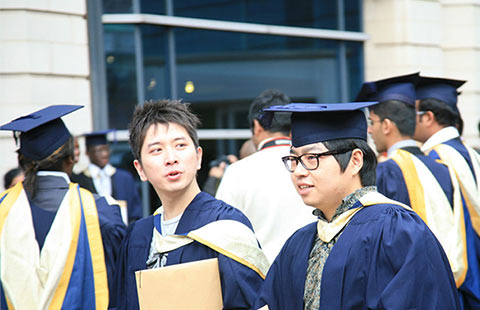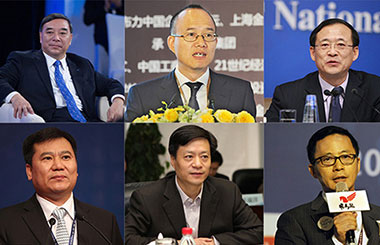'Golden time' approaching for Chinese students in Britain to start business
(Xinhua) Updated: 2015-10-26 09:24They were among the three winning teams selected from more than 200 others in Britain, getting the chance to go to Beijing to participate in the final round and present their projects to some of China's top investors.
A total of 23 teams from the United States, Australia, Britain, Israel and China entered the final round of the competition, hoping for securing investment from investors. The competitors also had the chance to get funding and other preferential treatment from the government of Chaoyang district.
"The number of start-ups led by Chinese students is increasing in recent years," said Philip Hao, chairman of the Young Entrepreneur Society Global, or Yes Global, which organized the British round of the start-up competition that Yao's team participated in.
The rising trend was a result of both the policy supports from the two governments and the new way of doing business in the Internet era, said Hao.
A large number of the Chinese student-led start-ups he has seen focus on online service. This is no coincidence, since even a one-man team can jump start business in the Internet era, like selling on eBay.
But "running a company is not just coming up with great ideas or being venturous... Nowadays, market competitions are getting more and more intense with all the young entrepreneurs fighting to make it to the top tier," said Hao. "So it is more about how to establish systematic management and how to control budget. You need to attend to every detail."
In Yao's case, the government of the Chinese city of Suzhou has offered help to his team in securing investment in the initial phase and the University of Warwick has promised to help them in their project's future development.
"Without such support, it would be much harder for us to enter the business world," said Yao.
Despite the tough challenge in the business world, British universities quite often maintain an open mind on student entrepreneurship.
"Enterprise and start-up companies are an increasingly important option for university students of all nationalities," said Keith Burnett, vice-chancellor of the University of Sheffield and member of the British Prime-Minister's Council of Science and Technology.
"The University of Sheffield encourages students to become actively involved in its enterprise activities and has the largest program of students in free enterprise in the UK," Burnett said.
An international team of Sheffield students working together on start-up business ventures in the areas of health and support for people in need recently reached the global finals of this year's Enactus World Cup held in Johannesburg in South Africa on Oct 14-16, an international event which aimed at promoting enterpreneurial action as a catalyst for progress.
- China, Britain strengthen cooperation to push yuan's global use
- China, Britain raise curtain of 'golden time' in ties with $60b deals
- Britain counts on China's infrastructure prowess for economic revival
- China, Britain must fully tap potential in trade
- Top 10 degrees that provide highest paid jobs in UK
- Belt and Road helps China become net capital exporter: Report
- Macao concludes major trade fair with 50 deals inked
- China's building materials sector remains sluggish
- Chinese listed company to buy Texas oil fields in 8.3b yuan deal
- China steel output falls, prices retreat
- Registered capital of entities triples in Tianjin FTZ
- China's 12th Five-Year Plan achievements a milestone for centenary goal
- Covestro chief bullish on China
- ICBC helps investors abroad














